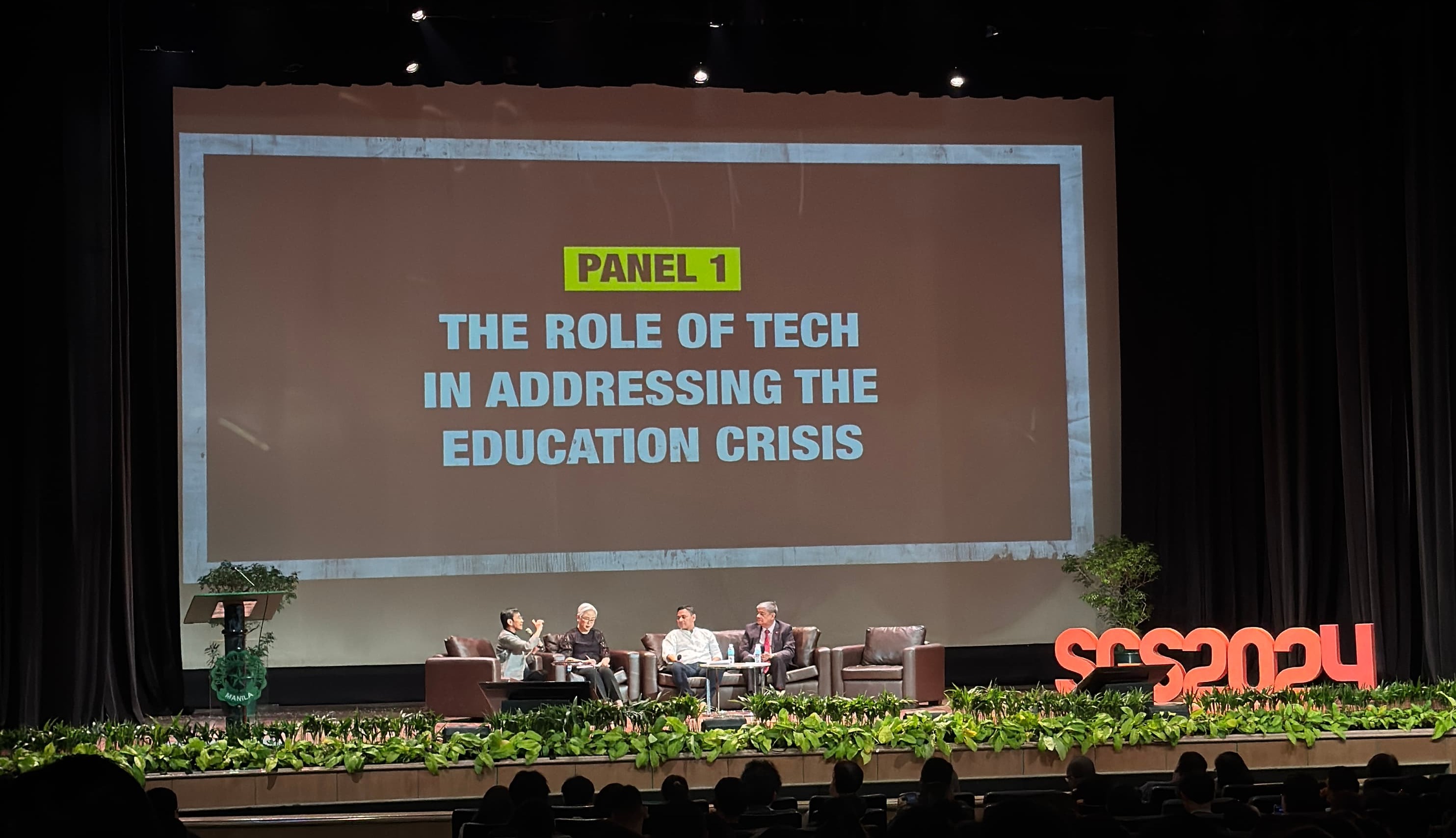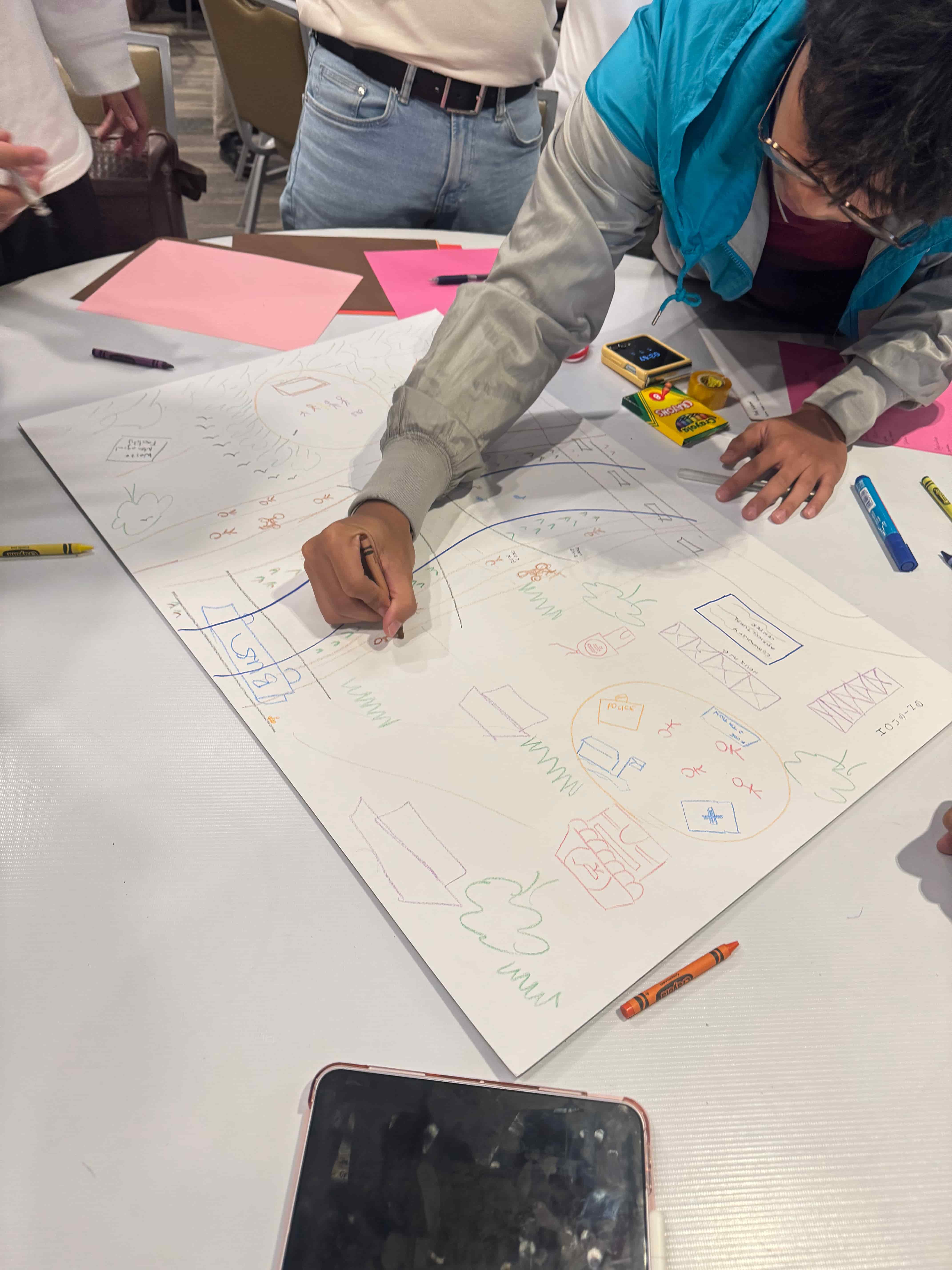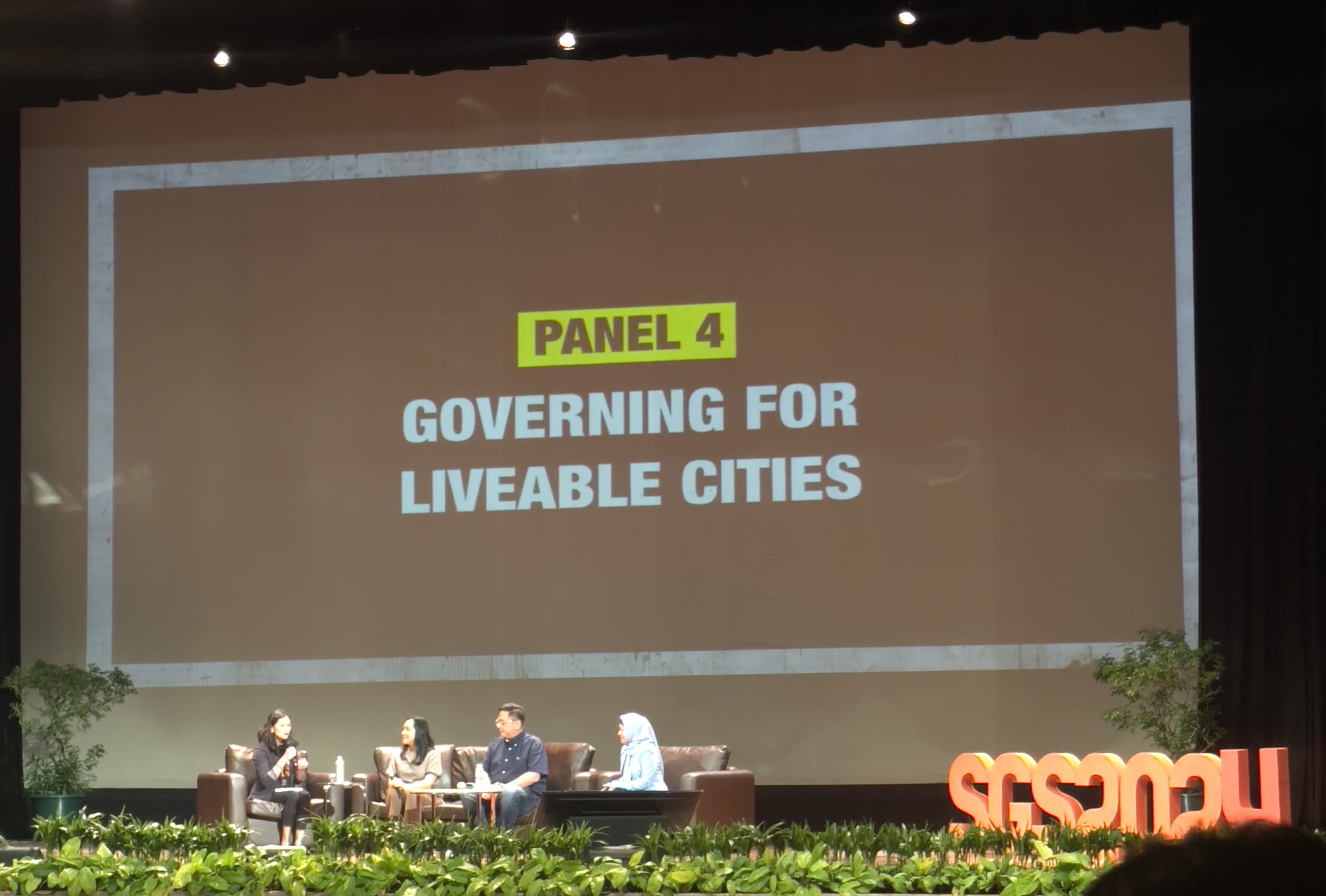- Published on
Reflections and Takeaways from the Social Good Summit 2024: Education, Tech, and Liveable Cities
- Authors
- Name
- Feye Andal
- @dfeyeandal
The Social Good Summit 2024, organized by Rappler, was a whirlwind of learning and reflection, touching on so many pressing issues from the education crisis to climate-resilient cities. The conversations were so rich and insightful that I found myself still processing many of the ideas long after the event ended. This blog post is a way for me to capture and reflect on some of those key learnings and the questions they left me with.
Panel 1: The role of tech in addressing the education crisis
One moment during the panel on the role of technology in addressing the education crisis (Panelists are Education Secretary Sonny Angara, Ateneo's Laboratory for the Learning Services Dr. Maria Mercedes, and Save The Children Philippines' CEO Alberto Muyot) really struck me. Dr. Marcedes noted that parents nowadays hand their kids an iPad or a smartphone in restaurants to keep them quiet, and she has observed that there is a lack of outdoor exposure for children due to excessive smartphone use. While I agree that it’s indeed a worrying trend, that kids are spending more time on screens than playing outside, it also made me think: What does it say about our approach to parenting, technology, and its impact to education? Is there a quick fix? How do we engage them more? But then again, as someone without kids, I can only speculate. I also wonder what I'd do if I were in that situation.

Or maybe this isn’t just about short-term distractions, but a deeper issue about how our environment and societal habits are shaping children’s development. Reflecting on this, I realized it’s not just the parents’ choice; it’s also about what options they have. Where can kids go? In the Philippines, safe and accessible spaces, parks or playgrounds are often lacking. When I visited Amsterdam, I was amazed by how accessible parks and libraries were. Kids were out playing, reading, or simply being active in public spaces. Kids have ample spaces to explore, learn, and socialize. It was a stark contrast to the Philippines, where parks and libraries are either scarce or underfunded. Why is it so hard for us to achieve that here? Do we lack the political will, or is the cultural appreciation for these spaces already diminishing? It's quite disheartening because I believe these spaces offer much more than temporary entertainment, but they also cultivate social integration, and even form a sense of community.
But the problem goes beyond just space and technology; it’s also about culture. There seems to be a growing reliance on digital devices to occupy children, and it raises the question: what kind of future are we creating for them? A future where screen time replaces real-world experiences? The challenge isn’t just about limiting smartphone use but also creating environments that encourage children to step outside, explore, and engage with the world. Without that, it’s hard to imagine how we can break the cycle of excessive screen time.
Panel 2: Content Creation for a Cause
Another highlight for me was the panel on content creation for a cause, especially Arshie Larga's insightful remarks. Arshie highlighted a critical observation: his audience craves more than just entertainment, they want to be educated. This shift reflects how people, especially younger audiences, are seeking substance in the content they consume. But what made Arshie’s approach remarkable was his careful consideration of the responsibility that comes with educating an audience. With his large following and influence, he understands the weight of his words and the potential impact they can have on shaping opinions and beliefs.
He also emphasized a crucial point: content creators like him were professionals first before becoming influencers. This really resonated with me because it reinforces the idea that expertise and credibility matter more than just numbers or fame. Despite the lucrative brand deals, Arshie stays rooted in his values, focusing on his role as an educator and advocate rather than just a clout-chaser. It’s an approach I admire, especially since I also use social media for my OpenStreetMap advocacy. It’s a reminder that as creators, we hold the power to inform and inspire—and with that power comes a responsibility to stay true to our principles.
Breakout Session on Climate-Resilient Cities
One of the most engaging parts of the summit for me was the breakout session on Climate-Resilient Cities. The session featured a panel composed of representatives from Office of the Civil Defense, Quezon City Local Government Unit, Placemaking Pilipinas, and UPRI Executive Director Dr. Mahar Lagmay. Each panelist shared insights and the challenges they face in making cities more resilient to climate change. From the national perspective to the local level, it was clear that climate adaptation is a complex, multi-layered issue.
What particularly stood out was Dr. Lagmay’s call for open data and transparency—“open everything,” as he put it. His point was that by sharing data, resources, and knowledge, we can collectively build smarter, more resilient cities. He emphasized the importance of data-driven and science-based decision-making, education, and collaboration in addressing climate challenges. This resonates deeply with me, as I also advocate for open data in my work with OpenStreetMap. It’s this type of open collaboration that can empower communities and governments alike to make informed, impactful changes.
To cap off the session, we participated in a placemaking activity, where groups were tasked with sketching out their visions for ideal cities. For our group, it is: sustainable, green, and smart. This exercise hit particularly close to home for me, as it echoed the work I often do in engaging communities to envision how they perceive and shape their environments. It was inspiring to see participants from various backgrounds coming together to imagine the future we all deserve.

Panel 4: Governing Liveable Cities
Lastly, I was genuinely fascinated by hearing from Mayor Joy Belmonte of Quezon City at the last panel discussion on governing liveable cities. This session was another highlight of the summit, with mayors like Mayor Joy Belmonte of Quezon City providing a frontline perspective. Each mayor on the panel shared their city’s strategies for making urban life not only sustainable but also truly liveable for their residents.
Mayor Joy’s approach was the most striking for me because of her deep commitment to programs that are directly benefiting the marginalized. She talked about initiatives like the Right to Care card, and Libreng Sakay, which are not just policies on paper but services that are actively used by the people who need them most. These programs reflect a governance model that prioritizes inclusivity and accessibility, making sure that the benefits of urban development reach everyone, especially those often left behind.

I’ve lived in Quezon City for over six years, and I’ve witnessed how these programs have shaped the city into a more progressive, caring place. While I’m not a voter in Quezon City since I vote in Marikina City, it’s clear that leadership like this can make a real difference in people’s lives. This panel reaffirmed that governing livable cities is about aligning governance with the needs and aspirations of the people. It’s not just about creating a more efficient urban environment, but one where residents—regardless of their background—feel supported, valued, and empowered to thrive.
This summit was a reminder of how interconnected our challenges and solutions are, whether it’s education, governance, or urban design. It also made me reflect on how much potential we have if we continue to innovate, advocate, and work together. Thank you, Rappler, for organizing such an amazing summit.